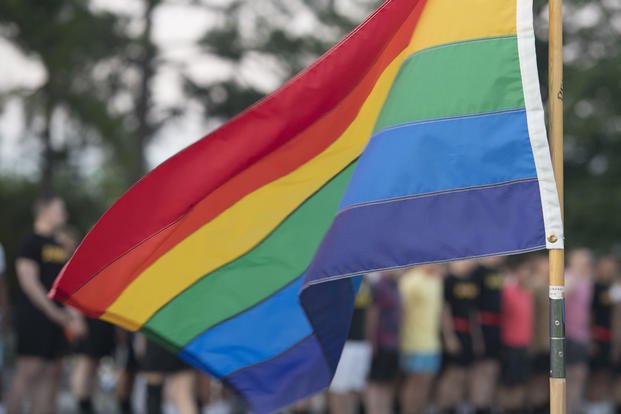The Future of Crewless Naval Warfare Is Being Built in New England

What’s behind a surge in funding recently for startups in Massachusetts and Rhode Island that want to design and build ships?
Two words: uncrewed vessels.
With maritime drones seeing action in the Middle East and the Ukraine-Russia conflict, entrepreneurs and investors in the U.S. bet that the Pentagon is becoming more interested in the technology – and that there could be an opportunity for new suppliers.
Last month, a Lexington, Massachusetts, startup, Blue Water Autonomy, raised $50 million to build a 150-foot autonomous warship.
Last September, HavocAI, with headquarters in Providence, Rhode Island, raised $11 million to build a 100-foot vessel, with a targeted completion date of late 2025.
Boston-based Sea Machines has raised $58 million and is pitching two autonomous ships to military customers.
This year’s Big Beautiful Bill, signed by President Trump in July, allocated several billion dollars[1] toward unmanned systems across all branches of the military.
Becoming ‘the Waymo for the Open Ocean’
“Our big vision is we want to be the Waymo for the open ocean,” says Rylan Hamilton, CEO of Blue Water Autonomy. “The Navy is the most obvious customer, because they have a willingness to pay.”
One of Blue Water’s big backers is Google Ventures, the investment arm of the Silicon Valley tech giant. Hamilton previously worked for Amazon Robotics, the division of the e-commerce company that makes warehouse robots. He also spent four years serving as a surface warfare officer in the Navy.
Another co-founder, Austin Gray, served as a Naval intelligence officer and spent time working in a drone factory in Ukraine. He said in a recent interview[2] with the website Infinite Frontiers that he is “obsessed with applying everything happening in Ukraine to the Navy’s force architecture.”
Hamilton said the company “is basically creating a pickup truck for the Navy, where we can carry different payloads in the back, in 20- and 40-foot containers.” That could be equipment needed in a war zone or surveillance gear.
The Navy has said it is also interested in launching missiles from unmanned craft.
Blue Water isn’t just trying to reduce the number of crew members needed on a Navy ship; it’s trying to eliminate the crew entirely.
“From the keel up, [the ship is designed to have] zero people,” Hamilton said. “The minute you put one sailor on board, your cost goes up by three times, because you need to build berthing, you need to build a galley, you need to put a gym on there ... You’re basically putting a hotel on top of a ship.”
Hamilton adds that the lower cost of losing an uncrewed ship — in both dollars and lives — makes them appealing to the Navy.
The company has not yet chosen a site for building its vessels, Hamilton said, but Blue Water is already testing a large-scale prototype ship, packed with still-in-development technology, in Massachusetts waters.
The company recently hired several key team members who worked on a Pentagon research project[3] to design an uncrewed ship that could stay out at sea for up to a year.
Relying on Partners to Build
Sea Machines, based in Boston, got started a decade ago. But unlike Blue Water, it doesn’t plan to build its own ships.
“We’re working with builders that have that expertise,” Michael Johnson, founder and president of the company, said.
That includes one builder in Eastern Europe and one based in the Netherlands with an affiliate in Florida. Last year, Sea Machines unveiled two designs for small autonomous vessels, 22 feet and 26 feet in length.
Sea Machines has been supplying hardware and software to other shipbuilders that enable them to create autonomous or remotely-piloted vessels. The company has 42 employees and raised $58 million so far.
Johnson originally started the company in Texas, but moved to Massachusetts, “because I knew that I needed talent from the robotics space. I needed software talent.”
In contrast, he said, much of the shipbuilding talent and smaller shipyards are on the Gulf Coast and the Pacific Northwest.
HavocAI, the Rhode Island company, announced a partnership[4] in May to put its technology into ship hulls built in Honolulu by a company called PacMar. Earlier this month, the company demonstrated[5] that its small craft could help protect a ship convoy in an Army-sponsored competition held near Pearl Harbor on the island of Oahu in Hawaii.
Several of the startups headquartered in New England are already building ships outside of the region.
Gray Chynoweth, an angel investor in defense-related startups and a Navy reservist, said that it’s still “up for grabs” where the bulk of manufacturing will be done for this new kind of ship.
“I do think that there’s some cost structures that are going to be attractive about manufacturing elsewhere in the country, but I also think that there’s an opportunity for New England to figure out how to support those types of jobs here” — especially if they involve highly-automated assembly lines, Chynoweth said. “If labor [costs] aren’t a huge component of it, then it could be very cost-competitive to do it in New England.”
New Funding Could Flow
The defense sector could also be a bright spot for attracting federal research dollars – not to mention defense spending – in a region that has seen funding for many other kinds of scientific research decrease in 2025, Chynoweth said.
He noted that, in addition to companies building surface vessels, other startups such as Anduril Industries, Jaia Robotics and VATN Systems have teams in New England focusing on autonomous craft that would maneuver underneath it.
“I think a lot more autonomous companies could come out of Boston, given its deep roots in robotics,” Chynoweth said.
© 2025 Advance Local Media LLC.
Visit masslive.com[6].
Distributed by Tribune Content Agency, LLC.[7]
© Copyright 2025 MassLive.com. All rights reserved. This material may not be published, broadcast, rewritten or redistributed.
